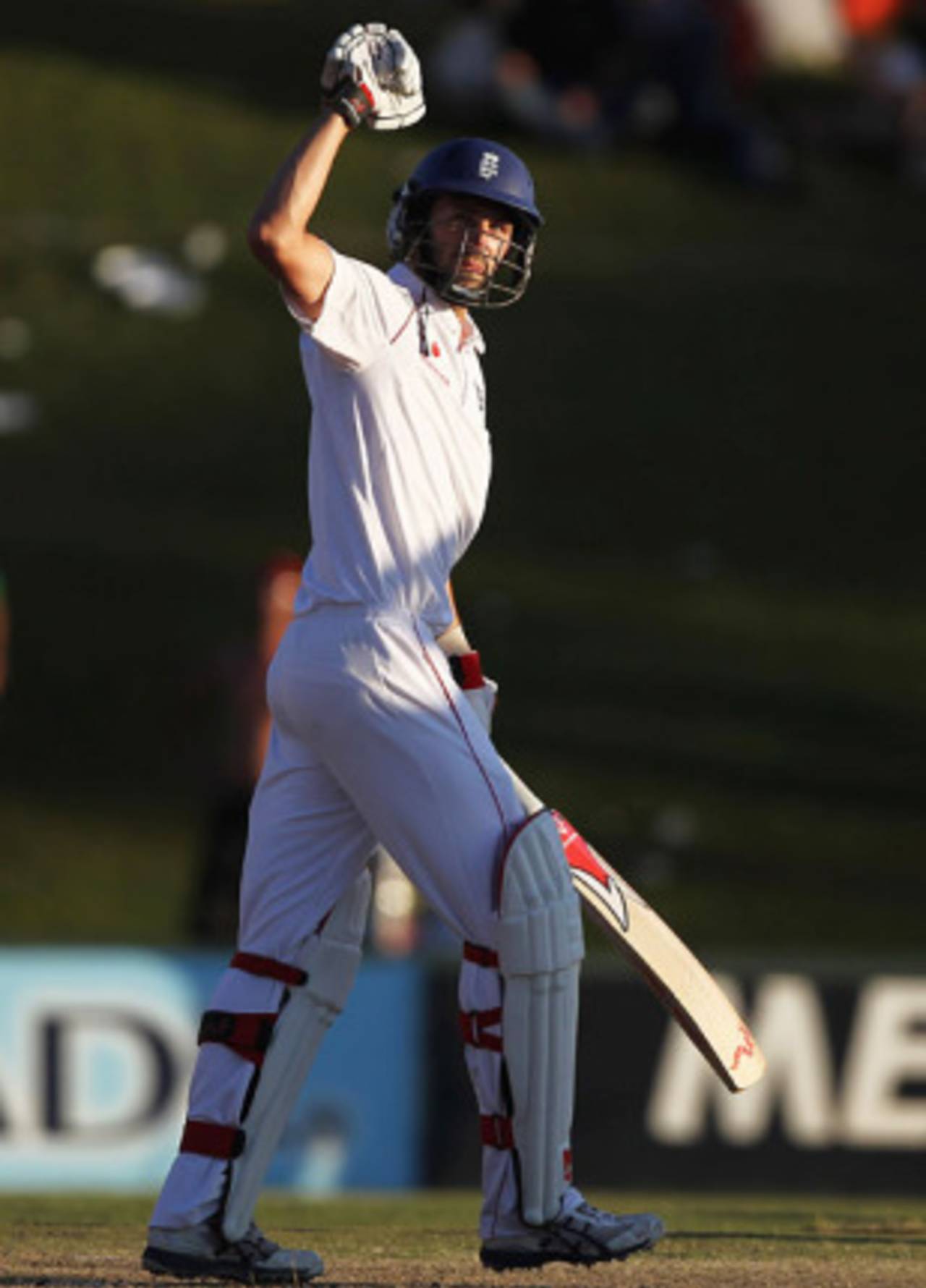The ICC should be very grateful to England. They certainly make Test cricket interesting. Whether it's winning, losing or drawing, it's rarely dull. Five months after their great escape in Cardiff, their repeat performance at Centurion almost turned into the great cock-up. Instead it was left to the final pair of Paul Collingwood and Graham Onions to survive the final 19 balls.
On the fourth evening of this game, Jimmy Anderson had recalled the Cardiff Houdini act, when he and Monty Panesar blocked out the last 69 deliveries to save a match that proved critical to their summer's success. But he hadn't banked on his team-mates taking his recollections as an invitation for a repetition. And yet, once again it was left to the last man - this time Onions - to help save the day. At least for Collingwood, who made a critical 74 back in July, it allowed him to have some control over events rather than watching from the balcony as happened against Australia.
"It's fair to say Cardiff was in the back of my mind most of the time," Collingwood said. "It's very satisfying when you walk off and know you've done something for the team and seen it through - and it's nice to adapt your game to those situations. The best players in cricket can do that. But I don't really like getting in those situations at all - and I hope we don't get in too many in the future."
Test cricket, we are told, is on its last legs but recently we have seen New Zealand and Pakistan share the honours in an absorbing contest and the stirring efforts of West Indies in Australia. Of course some games won't engage the emotions in the same way, but the wonderful aspect of the five-day game is its inherent ability to surprise, thrill and entertain, and pull drama out of nowhere. Even Andrew Strauss had to admit this was a great match, although he doesn't fancy too many more.
"I was going to say we have been fortunate to be in that situation a few times in the last 12 months, but I don't think we are fortunate to be," he said. "It was an outstanding Test match, full of ebbs and flows and both sides had opportunities to get on top. It was great to see the crowd here completely enthralled by what was unfolding, and we hope there will be more games like that to come in the series."
Strauss's emotions came close to being very different. England were one wicket away from adding to their list of overseas embarrassments which, from recent years, include the famous demises at Adelaide and Kingston. Unlike Cardiff, where the feeling was one of pure joy at having somehow repelled Australia through that final day, on this occasion the overriding emotion was one of relief. "I hate it when No. 11 batsmen have to get us out of jail," Strauss said. "It's not their job to do that. But it says a lot for the individual."
And yet, the titanic climax to the final day shouldn't really have come as a surprise. Back in 2007-08, when England batted out the final against Sri Lanka in Colombo for just three wickets down, Michael Vaughan commented how it was rare to see the team save a game so easily. Doing it the white-knuckle way is the more normal course of events.
The drama began when Kevin Pietersen undid more than three hours of fine batsmanship, and a stand of 145 with Jonathan Trott, by trying to run a single to the bowler, Friedel de Wet. The fact that it was shortly after an interval may have had something to do with it, as Pietersen likes to keep his energy levels veering towards the hyperactive. Whatever the reason, it was a mad attempt at a single.
"I won't be blaming anyone," Strauss said, although he may have though differently had Onions not survived. "Those misunderstandings happen in cricket all the time. It was a shame - those two were going very well together - but I'd rather focus on their outstanding partnership in a pressurised situation. Days like this are opportunities for guys to really show something special, and I think both of those two did today."
Almost as soon as Pietersen trudged off, however, thoughts turned back to Antigua in 1997-98 when Nasser Hussain and Graham Thorpe were guiding England to a fairly comfortably draw. Then there was a horrible mix-up which left Hussain run out and England duly subsided in the fading light, losing seven wickets in the final session alone. It brought the curtain down on Mike Atherton's time as captain and while Strauss wouldn't have faced the same fate if the tenth wicket had fallen on this occasion, he would still have had to sit through a sombre Christmas.
However, the collapse didn't really hit top speed until Trott was undone by a brute of a ball from de Wet. It was the latest example of how, almost at the click of the fingers, a collapse can overwhelm a batting unit, and it brought back memories of Jamaica earlier this year when England were humbled for 51 by Jerome Taylor and Sulieman Benn.
On that occasion England were a fractured and dispirited rabble still in the immediate aftermath of the Pietersen-Moores debacle. The side has changed immensely since that time and they are now a cohesive unit with strong fighting qualities. But they still retain that irrepressible skill to make life exceedingly tough for themselves and, boy, did they do that here.
Andrew McGlashan is assistant editor of Cricinfo
